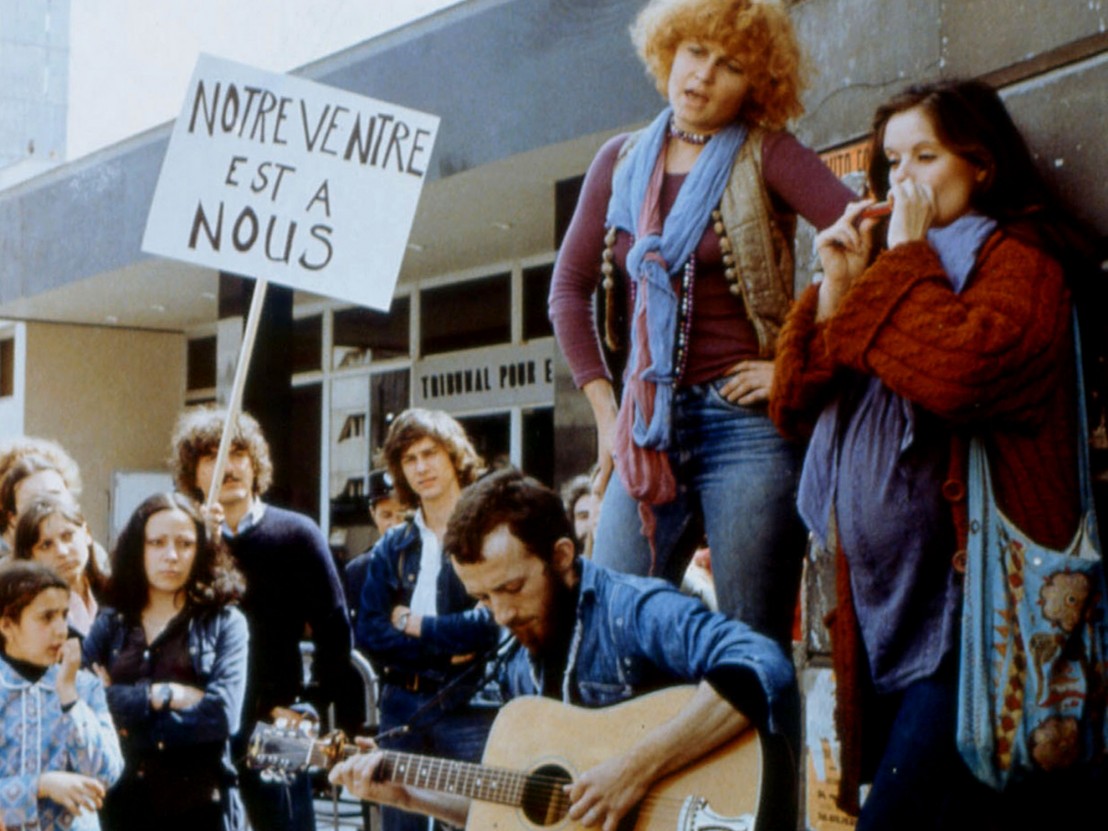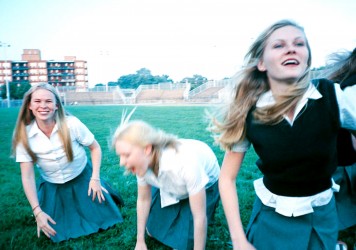
“They fought to gain the happiness of being a woman,” is the conclusion reached at the end of Agnès Varda’s 1977 feminist musical, One Sings, the Other Doesn’t. This passionate sentiment is echoed in Catherine Corsini’s tender new romance, Summertime. Covering the period of second-wave feminism in Paris over the 1970s the women in both films take to the streets to protest, sing revolutionary songs and break the patriarchy.
The furore over a woman’s right to do what she wants with her body and have a lawful abortion is still a major issue that politicians stand against to levy support. When asked whether it is still relevant to talk about the Women’s Liberation Movement, Corsini responded: “We are living in a time of terrible regression, and it is of vital importance to acknowledge it and act on it.” Both films use abortion as a jumping off point for friendships or relationships to blossom.
In Summertime, country girl Delphine (Izïa Higelin) meets the older, politically engaged Carole (Cécile De France) as she embarks on her new life in Paris. Her eyes are opened to the oppression that women suffer via impassioned feminist meetings. The two women head to a lecture to protest abortion laws which leads them to begin a heady romance and in turn forces Delphine to confront contradictions between her political views and personal life.
Varda’s musical presents the angry youth leading the older women with teenager Pauline helping out an old friend and mother of two Suzanne to get an abortion. The years fly by and the two lose contact due to a tragedy but reconnect after 10 years at the Bobigny abortion trial in 1972. Lawyer Gisèle Halimi, who defended the women who openly admitted to having an abortion and had signed the Manifesto of the 343 (Varda included) appears as herself. Cruel injustice brings both sets of women together but their relationships are fruitful.
It’s important to both Varda and Corsini to explore the paradigm of standing up for what you believe in and how hard it can sometimes be to live out those particular values. Delphine adores the rural life and working on a farm, but when she is called back to attend to family business after her father falls ill, her relationship with Carole is tested. They hide their love from the small-minded village inhabitants and Delphine’s mother, which frustrates Carole.
Pauline spends the entirety of the film searching for happiness, and even moves to Iran with her lover. At first he seems progressive in his views, but the shackles of society soon take hold with an insidious sexism entering their relationship. Suzanne describes the sadness of moving back to her country home as being frozen, due to the fact that she can’t be herself while living with her judgemental parents. The pair convey their time apart through a series of correspondence filled with pain and explanations of the compromises they’ve had to make.
By the end of each film, the women are left to ponder their legacy and the impact it will have on future generations. Their youthful utopian ideology has brought about positive change in society and a sense of freedom they did not have before, but there’s no escaping the fact that similar mistakes will be made again such is the nature of life.
Published 15 Jul 2016

This ultra conventional lesbian melodrama from French director Catherine Corsini shows that going through the motions still has its pleasures.

Read part one of our countdown celebrating the greatest female artists in the film industry.

Sofia Coppola and Deniz Gamze Ergüven’s films speak of innocence lost and the trials of young womanhood.